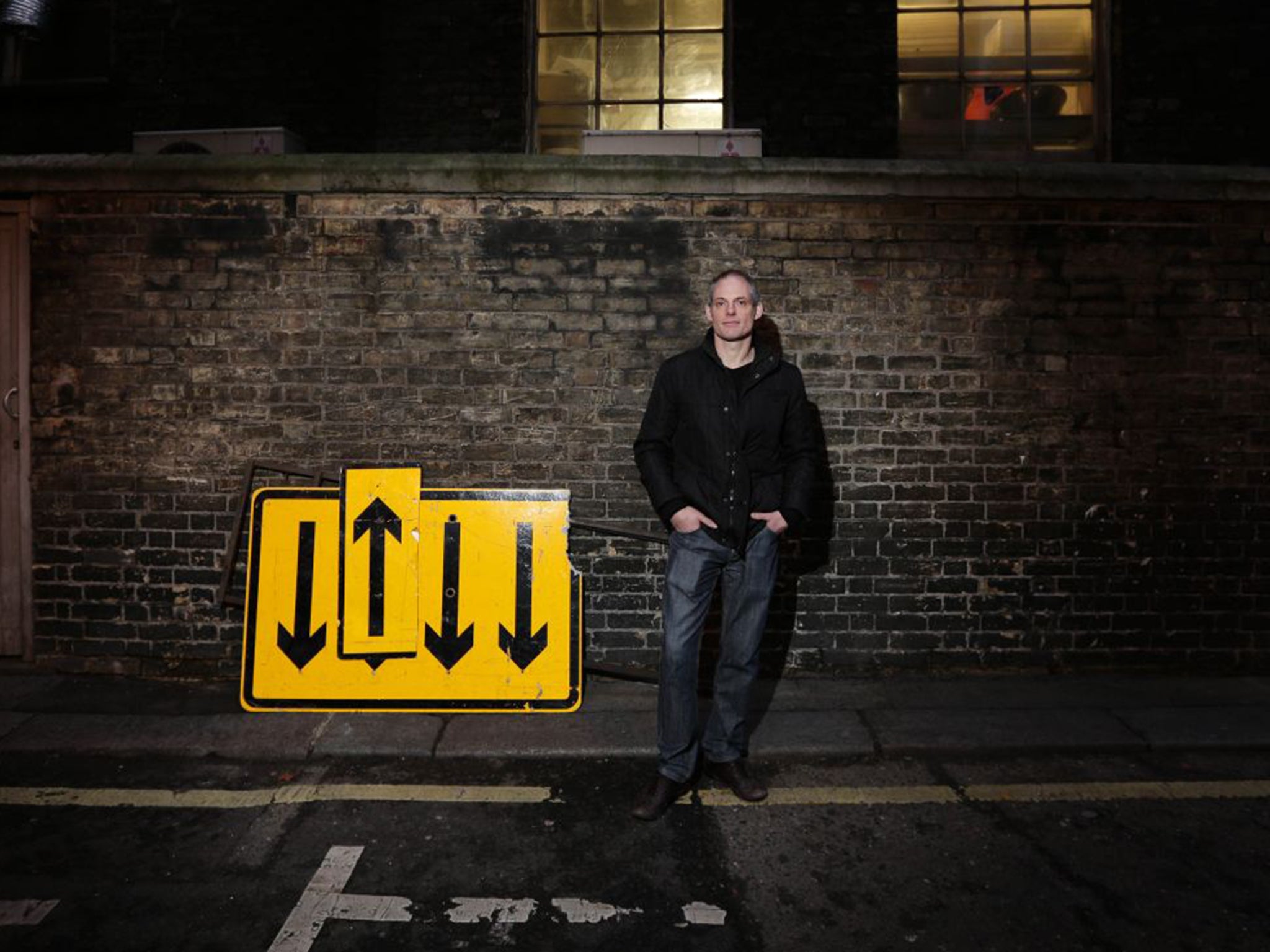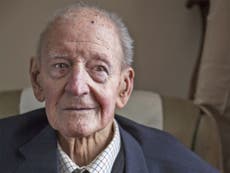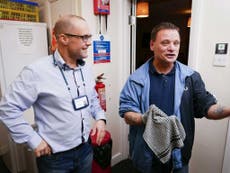Homeless Veterans appeal: 'When I gave up that badge, I lost my pride as well'
Even though he went from vital bomb-disposal work to sleeping on a roof, one Royal Marine assumed he would not qualify for help. Chris Green heard his story

Mark Hayward used to work for the Ritz, but a few months before Christmas he was living on a rooftop in Crystal Palace, south London. Desperate to get back on his feet, the former Royal Marine stood outside the premises of a nearby homelessness charity and dialled the number on the door. Nobody answered, even though he could see someone inside.
For the 46-year-old, who was once proud to wear the famous green beret, it was the latest slight in a downward spiral which began when he left the Royal Marines 11 years earlier. Homelessness, he says, became "an ironic cycle" which seemd impossible to break.
"To get out of this situation – to be clean, clothed and present myself to people – you need to be able to have a shower and wash your clothes. I was disgusting and filthy, and I felt distanced from the old me, like it was a different world," he recalls.
Born in Shropshire, Hayward grew up in the countryside and spent his childhood on farms. He loved the outdoors and was an enthusiastic member of the Cubs, Scouts and Cadets, before leaving school at 16 to work as a trainee gamekeeper.
In 1989, aged 20, he joined the Royal Marines and completed 32 weeks of gruelling training. "It's about strength of character more than anything else, and single-mindedness," he says. "They quite literally try to get rid of you – and if they can't, despite their best efforts, then you've proven that you've got what it takes. I welcomed it, and put myself in their hands."
Over a career spanning 14 years, Hayward worked in heavy weapons, learning how to destroy tanks, and trained as a helicopter door-gunner. He served in Bosnia and Northern Ireland, where he was a "bullet-catcher", or personal bodyguard for bomb-disposal officers. Later he worked in intelligence, planning secret operations.
Hayward was single-minded and driven, but he was also prone to bouts of depression. He says he knew "very early on" in his life that something was not quite right, but it is only in the past few months that he has been diagnosed with Asperger syndrome, the autism-spectrum disorder.
When he tried to seek help within the Marines, he says he was scoffed at by medical officers, repeatedly diagnosed with different ailments and ultimately forced to "get by and cope" as best he could. To his dismay, he was medically discharged in 2003 – losing the prized green beret and badge he had fought so hard to win.
"When I lost that badge, I lost the pride that I had also," he says. "When you're outside in civvy street walking around, no one knows who you are. No one knows anything about you. I was so afraid that I'd lost this identity that I'd gained, and I became quite insecure. My whole life had been about joining the Marines."
He floated from job to job, first working as a barman in Portsmouth then as a bouncer in Barcelona, where he lived for several years. He returned to the UK and moved to London, working in security for the Ritz Hotel and the Graff diamond company, living in a smart Docklands flat overlooking the Thames.
Outwardly his life seemed to be going well, but he often had disagreements with his employers, forcing him to change jobs – a cycle he now puts down to Asperger's. He lost his security licence after getting into a fight and being cautioned by the police. With no steady income, he was forced to move out of his flat.
"It got to the point where I couldn't stay with a friend, I couldn't sofa-surf any more," he says, recalling how he finally decided to sleep rough. As he was still being paid his military pension, his plan was to save enough to pay for a deposit on a new flat.
"I thought I could use my military training and basically camp out, take myself out of the system for a while until I could build up enough money," he says. "But the practicalities of being homeless are something that you don't really think about.
"The first night I sat on a bench, but you can't sleep or do anything because you're so vulnerable. I found a flat roof with trees growing over it, hidden from view. I was really afraid that somebody would see me – I couldn't handle the fact that me, of all people, was in this position. So I had to be invisible until I could come back into the system again and keep it all quiet."
After trying several charities and failing to get help, he reluctantly phoned Veterans Aid. "I associated the word 'veteran' with Chelsea Pensioners and people who've been through world wars, and I thought it wasn't going to be what I'm looking for," he recalls. "But something about the way they spoke to me was different – it wasn't condescending, or pitiful. They just said: 'How long will it take you to get to Victoria?'"
An hour later, Hayward was sitting in the charity's drop-in centre in central London. That night, he was given a handful of meal vouchers and a room in a hotel. "I was sitting in my room watching TV and thinking: 'When are they going to realise they've made a mistake?' It wasn't just a room to me, it was the beginning of the future, because I wasn't homeless any more," he says.
He is now living in New Belvedere House, the charity's hostel in Stepney, east London. "In a way I'm glad I had to fall completely," he says. "When you've fallen that far, but ultimately make it to where you want to be, people say 'Hats off to you'. That's the new badge on my arm."





Join our commenting forum
Join thought-provoking conversations, follow other Independent readers and see their replies